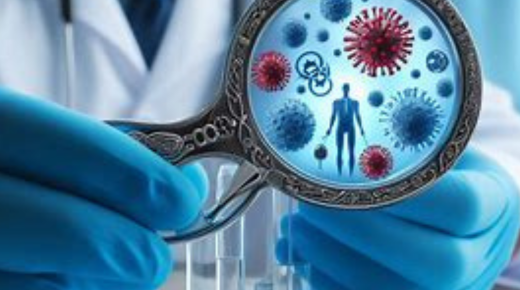Specialized Pathology Services – Key to Accurate Diagnoses

Specialized Pathology Services - Key to Accurate Diagnoses
Pathology services are essential for the accurate diagnosis and management of diseases. Specialized pathology services go beyond routine testing, offering detailed insights into complex conditions and guiding targeted treatments. This article explores the significance of specialized pathology services, the advancements in the field, and their impact on healthcare outcomes.
The Importance of Specialized Pathology Services
1. Accurate Diagnoses
Specialized pathology services provide the detailed analysis required for accurate diagnoses of complex conditions, including:
- Cancer Diagnosis: Identifying specific cancer types and subtypes through histopathology and molecular pathology.
- Infectious Diseases: Detecting and characterizing pathogens using advanced microbiological and molecular techniques.
- Genetic Disorders: Diagnosing inherited diseases and genetic abnormalities through cytogenetics and molecular genetics.
2. Personalized Medicine
Pathology services play a critical role in personalized medicine by providing information that guides individualized treatment plans:
- Biomarker Testing: Identifying biomarkers that predict response to specific therapies, particularly in oncology.
- Pharmacogenomics: Analyzing genetic variations that affect drug metabolism and efficacy, helping to tailor treatments.
- Disease Monitoring: Using pathology tests to monitor disease progression and treatment response, enabling timely adjustments to therapy.
3. Comprehensive Disease Management
Pathology services support comprehensive disease management by offering a wide range of diagnostic and monitoring tools:
- Chronic Disease Monitoring: Regular testing to manage conditions like diabetes, cardiovascular diseases, and autoimmune disorders.
- Infection Control: Rapid and accurate identification of infectious agents to guide appropriate treatment and prevent outbreaks.
- Preventive Screening: Early detection of diseases through routine screenings, such as Pap smears and mammograms, leading to better outcomes.
Advancements in Pathology Services
1. Digital Pathology
Digital pathology involves the digitization of histopathological slides, allowing for enhanced analysis and remote consultations:
- Whole Slide Imaging (WSI): High-resolution scanning of entire slides for detailed examination and archiving.
- Telepathology: Remote access to digital slides for consultation and diagnosis by specialists, improving access to expertise.
- AI-Powered Analysis: Utilizing artificial intelligence to analyze digital slides, identify patterns, and support diagnostic decisions.
2. Molecular Pathology
Molecular pathology focuses on the study of molecules within cells, providing insights into the genetic and molecular basis of diseases:
- Polymerase Chain Reaction (PCR): Amplifying DNA and RNA sequences to detect genetic mutations, infections, and other abnormalities.
- Next-Generation Sequencing (NGS): Comprehensive sequencing of genomes or targeted regions to identify genetic variations associated with diseases.
- Fluorescence In Situ Hybridization (FISH): Detecting specific DNA sequences on chromosomes, useful in cancer diagnosis and genetic disorders.
3. Immunohistochemistry (IHC)
IHC is a technique that uses antibodies to detect specific antigens in tissue sections, providing valuable diagnostic information:
- Cancer Subtyping: Identifying specific proteins expressed by different cancer types, aiding in accurate classification and treatment planning.
- Infection Detection: Using antibodies to identify pathogens in tissue samples, guiding appropriate antimicrobial therapy.
- Prognostic Markers: Detecting markers that predict disease outcomes and response to treatment, supporting personalized care.
4. Liquid Biopsy
Liquid biopsy is a minimally invasive method for detecting and monitoring diseases through analysis of bodily fluids:
- Circulating Tumor DNA (ctDNA): Detecting tumor-derived DNA in blood samples, useful for early cancer detection and monitoring.
- Exosome Analysis: Studying extracellular vesicles that carry molecular information, providing insights into disease processes.
- Cell-Free DNA (cfDNA): Analyzing DNA fragments in blood to detect genetic mutations and monitor treatment response.
Specialized Pathology Services in Different Medical Fields
1. Oncology
Oncology relies heavily on specialized pathology services for accurate diagnosis, staging, and treatment planning:
- Histopathology: Examining tissue samples to identify cancerous cells and determine tumor grade and stage.
- Molecular Profiling: Analyzing genetic and molecular characteristics of tumors to guide targeted therapies.
- Immunohistochemistry: Identifying specific proteins expressed by cancer cells, aiding in diagnosis and prognostication.
2. Hematology
Hematology involves the study of blood and bone marrow disorders, requiring specialized pathology services:
- Bone Marrow Biopsy: Analyzing bone marrow samples to diagnose leukemia, lymphoma, and other hematological conditions.
- Flow Cytometry: Assessing cell populations in blood and bone marrow to diagnose and monitor hematological malignancies.
- Cytogenetics: Studying chromosomal abnormalities in blood and bone marrow cells to diagnose genetic disorders and cancers.
3. Infectious Diseases
Pathology services are crucial for the rapid and accurate diagnosis of infectious diseases:
- Microbiological Culture: Growing and identifying bacteria, viruses, fungi, and parasites from clinical specimens.
- Molecular Diagnostics: Using PCR and other techniques to detect and characterize pathogens based on their genetic material.
- Serology: Detecting antibodies and antigens in blood samples to diagnose infections and monitor immune responses.
4. Genetic Disorders
Specialized pathology services are essential for diagnosing and managing genetic disorders:
- Genetic Testing: Analyzing DNA to identify mutations associated with inherited diseases.
- Prenatal Screening: Testing fetal DNA from maternal blood to detect genetic abnormalities before birth.
- Newborn Screening: Early detection of genetic disorders in newborns to initiate timely interventions and treatments.
5. Neuropathology
Neuropathology focuses on diseases of the nervous system, requiring specialized diagnostic techniques:
- Brain Biopsy: Examining brain tissue samples to diagnose tumors, infections, and degenerative diseases.
- Immunohistochemistry: Detecting specific proteins associated with neurological conditions, such as Alzheimer’s and Parkinson’s diseases.
- Molecular Diagnostics: Identifying genetic mutations and molecular alterations in neurological diseases.
Implementing Specialized Pathology Services
1. Infrastructure and Technology
Establishing specialized pathology services requires investment in infrastructure and advanced technology:
- Laboratory Facilities: Setting up state-of-the-art laboratories equipped with advanced diagnostic tools and equipment.
- Digital Pathology Platforms: Implementing digital pathology systems for efficient slide analysis, storage, and remote consultations.
- Molecular Diagnostics Labs: Establishing molecular diagnostics laboratories with capabilities for PCR, NGS, and other advanced techniques.
2. Skilled Workforce
A skilled workforce is essential for delivering high-quality specialized pathology services:
- Pathologists: Recruiting and training pathologists with expertise in various subspecialties, such as oncology, hematology, and molecular pathology.
- Laboratory Technicians: Employing trained technicians to perform complex diagnostic tests and ensure accurate results.
- Continuous Education: Providing ongoing training and professional development opportunities to keep staff updated on the latest advancements in pathology.
3. Quality Assurance and Standardization
Ensuring the accuracy and reliability of pathology services requires robust quality assurance and standardization practices:
- Accreditation: Obtaining accreditation from recognized bodies, such as CAP or ISO, to ensure compliance with international standards.
- Standard Operating Procedures (SOPs): Developing and implementing SOPs for all diagnostic processes to ensure consistency and accuracy.
- Regular Audits: Conducting regular audits and proficiency testing to monitor and improve the quality of pathology services.
4. Collaboration and Networking
Collaboration and networking with other healthcare providers and institutions enhance the delivery of specialized pathology services:
- Referral Networks: Establishing referral networks with hospitals, clinics, and other healthcare providers for specialized diagnostic services.
- Research Collaborations: Partnering with academic and research institutions to advance the field of pathology through collaborative research.
- Telepathology: Utilizing telepathology to provide remote consultations and access to specialized pathology expertise.
Future Directions in Specialized Pathology
1. Integration of Artificial Intelligence
The integration of AI in pathology is poised to revolutionize the field by enhancing diagnostic accuracy and efficiency:
- AI-Powered Image Analysis: Developing AI algorithms to analyze pathology images and identify abnormalities with high precision.
- Predictive Analytics: Using AI to predict disease outcomes and guide treatment decisions based on pathology data.
- Automated Workflows: Implementing AI-driven workflows to streamline diagnostic processes and reduce turnaround times.
2. Expansion of Molecular Pathology
Molecular pathology will continue to expand, providing deeper insights into the genetic and molecular basis of diseases:
- Comprehensive Genomic Profiling: Expanding the use of NGS and other techniques for comprehensive genomic profiling of various diseases.
- Liquid Biopsy Advancements: Enhancing liquid biopsy technologies to improve sensitivity and specificity for early disease detection and monitoring.
- Targeted Therapeutics: Developing new targeted therapies based on molecular and genetic findings from pathology tests.
3. Personalized and Precision Medicine
The role of pathology in personalized and precision medicine will grow, offering more tailored and effective treatments:
- Biomarker Discovery: Identifying new biomarkers for disease diagnosis, prognosis, and treatment response.
- Pharmacogenomics Integration: Incorporating pharmacogenomic testing into routine pathology services to guide personalized treatment plans.
- Patient-Centered Care: Using pathology data to develop individualized care plans that address the unique needs of each patient.
4. Global Standardization and Collaboration
Global standardization and collaboration will ensure consistent and high-quality pathology services worldwide:
- International Guidelines: Developing and implementing international guidelines and standards for specialized pathology services.
- Global Research Initiatives: Participating in global research initiatives to advance the field of pathology and share knowledge and expertise.
- Telepathology Networks: Establishing telepathology networks to facilitate international consultations and access to specialized pathology expertise.
Specialized pathology services are critical for accurate diagnoses, personalized medicine, and comprehensive disease management. Advances in digital pathology, molecular diagnostics, immunohistochemistry, and liquid biopsy are enhancing the precision and effectiveness of pathology services. Implementing these services requires investment in infrastructure, skilled workforce, quality assurance, and collaboration. As the field continues to evolve, the integration of AI, expansion of molecular pathology, and focus on personalized medicine will further improve healthcare outcomes. Ensuring global standardization and collaboration will be essential for delivering high-quality specialized pathology services worldwide.








